Ever find yourself deep in a name-hunting spiral, thinking “I want something gorgeous, but also kind of dark and mysterious, like a Tim Burton heroine with flawless eyeliner”? Yeah, same. Picking the perfect name—especially one that feels poetic, powerful, and just a little haunted—is no easy feat. You want meaning, mood, and maybe a whisper of the night.
Whether you’re naming a character, looking for a baby name with edge, or just vibing with that soft-goth aesthetic, we’ve rounded up 300+ Japanese girl names that blend eerie beauty with rich, shadowy meanings. Think names that stir the soul and make you feel like you’re walking through a moonlit forest in slow motion.
So if you’re craving a list that’s as enchanting as it is intense, you’re in the right place. Let’s get witchy.
Japanese Girl Names With Dark Meanings and Their Origins
Darkness isn’t always cruel. In Japanese culture, shadows carry mystery, elegance, and depth. These names draw from ancient beliefs, forgotten legends, and nature’s somber beauty. Each name whispers of the unseen—of moonless nights, sorrowful spirits, and fading memories. They’re not simply names, but quiet poems wrapped in meaning.
- Kurai (暗い) – Gloom or darkness
- Yami (闇) – Deep darkness or shadow
- Shizuka (静香) – Silent fragrance

- Kurohana (黒花) – Black flower
- Ayakashi (妖) – Mysterious apparition
- Namida (涙) – Tear
- Reika (怜華) – Ghostly elegance
- Kanashimi (哀しみ) – Sorrow
- Tsukiko (月子) – Child of the moon
- Yuurei (幽霊) – Spirit or ghost
- Mayonaka (真夜中) – Midnight
- Hoshiko (星子) – Star child
- Fukai (深い) – Deep or profound
- Shinigami (死神) – Death god
- Kagerou (陽炎) – Mirage
- Aokigahara (青木ヶ原) – Sea of trees
- Higure (日暮) – Dusk or sundown
- Nokoribi (残火) – Dying embers
- Sanzu (三途) – River of the dead
- Hakanai (儚い) – Fleeting or fragile
- Urami (恨み) – Resentment
- Tsukihana (月花) – Moon flower
- Oborozuki (朧月) – Hazy moon
- Jorogumo (絡新婦) – Spider woman spirit
- Yugure (夕暮れ) – Twilight
- Kurotsuki (黒月) – Black moon
- Enma (閻魔) – Ruler of the afterlife
- Kageko (影子) – Shadow child
- Akatsuki (暁) – Crimson dawn
- Hisoka (密) – Secretive or reserved
- Kurogane (黒金) – Dark metal
- Shiori (栞) – Poetic sadness
- Mika (美影) – Beautiful shadow
- Aisa (哀咲) – Sorrowful bloom
- Hoshimi (星見) – Star gazer
- Tsukiyo (月夜) – Moonlit night
- Kagehana (影花) – Shadow flower
- Rin’u (輪憂) – Circle of sadness
- Mana (真奈) – True void
- Himei (悲鳴) – Scream

- Urei (憂い) – Melancholy
- Mikazuki (三日月) – Crescent moon
- Kuronami (黒波) – Dark wave
- Shinju (真珠) – Tragic love
- Towa (永遠) – Eternal
- Sakurazono (桜園) – Garden of fallen blossoms
- Kyouka (鏡花) – Mirror flower
- Nozomi (望) – Hopeless wish
- Zetsubou (絶望) – Despair
- Maboroshi (幻) – Illusion
- Kuroyuki (黒雪) – Black snow
- Yukiha (雪刃) – Snow blade
- Tsuyu (露) – Morning dew
- Kuroe (黒絵) – Dark picture
- Aiyoku (哀欲) – Sorrowful desire
- Shin’en (深淵) – Abyss
- Kaika (悔華) – Regretful flower
- Omoide (思い出) – Memory
Rare and Hauntingly Beautiful Japanese Female Names With Dark Undertones
Some names live between beauty and sorrow. They sound soft but echo with mystery. These names carry a haunting grace—gentle, rare, yet heavy with meaning. Rooted in loss, longing, or eerie folklore, they stir the soul and paint stories on silence. Each name holds a shadow of elegance.
- Yozora (夜空) – Night sky
- Haruka (遥香) – Distant fragrance
- Umeko (梅子) – Plum blossom of sorrow
- Suzume (雀) – Sparrow of fate
- Kagami (鏡) – Mirror
- Hikage (日陰) – Shade or hidden sun
- Natsume (夏目) – Summer’s sorrow
- Shirayuki (白雪) – White snow
- Anzu (杏) – Silent apricot
- Kanae (奏恵) – Blessing of melody
- Tsukishiro (月白) – Pale moon
- Kohaku (琥珀) – Amber trapped in time
- Sumire (菫) – Violet of mourning
- Tsubaki (椿) – Winter camellia
- Hazuki (葉月) – August leaf
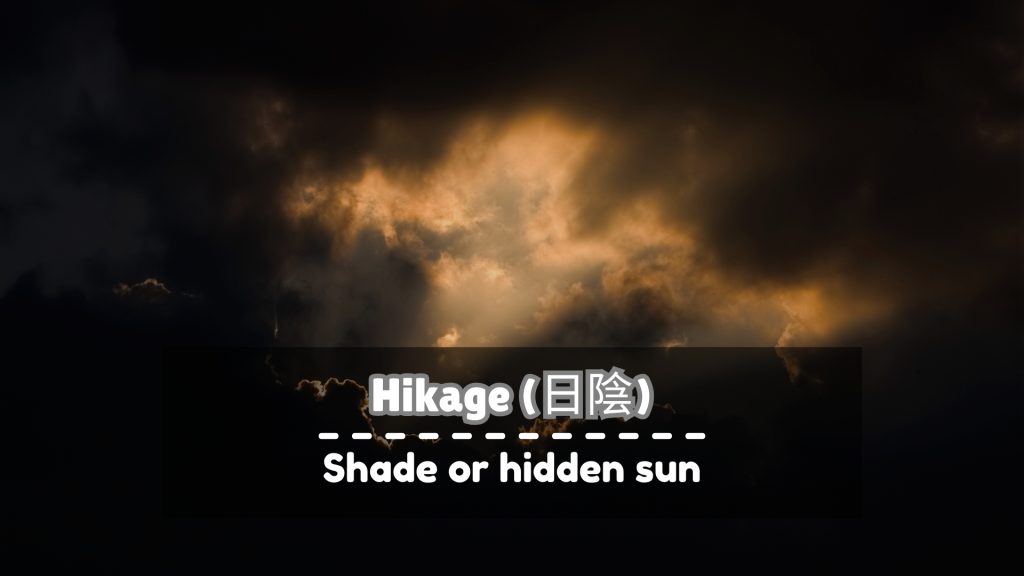
- Aozora (青空) – Blue sky with hidden sorrow
- Itsuki (樹) – Lonely tree
- Usagi (兎) – Rabbit of silence
- Kohana (小花) – Little flower of dusk
- Renge (蓮華) – Lotus in mud
- Yukari (縁) – Fateful connection
- Amane (天音) – Heavenly echo
- Rin (凛) – Cold beauty
- Hotaru (蛍) – Firefly fading in night
- Noa (乃愛) – Quiet love
- Seina (聖奈) – Sacred yet fragile
- Mio (澪) – Water’s path
- Airi (愛璃) – Glass love
- Izumi (泉) – Well of emotion
- Fuyuka (冬香) – Winter scent
- Chihiro (千尋) – Thousand questions
- Misaki (岬) – Lonely cape
- Hiyori (日和) – Weather of fate
- Sayaka (沙耶香) – Clean yet shadowed fragrance
- Nadeshiko (撫子) – Fragile pink flower
- Maaya (真綾) – True silk
- Ayame (菖蒲) – Iris of melancholy
- Reina (怜奈) – Clear judgment, cold grace
- Suzuna (鈴菜) – Bell herb
- Runa (瑠奈) – Gem moon
- Meiko (芽衣子) – Sprouting child
- Yurika (百合香) – Lily’s scent
- Sayuri (小百合) – Little lily
- Kana (香奈) – Fragrance of grace
- Kasumi (霞) – Mist
- Kohanae (小花恵) – Little blessed flower
- Riko (理子) – Child of reason
- Nanami (七海) – Seven seas
- Yurina (友里奈) – Gentle village child
- Arisa (有紗) – Threaded elegance
- Chika (智香) – Wisdom and scent
- Asuka (明日香) – Fragrance of tomorrow
- Momoka (桃花) – Peach blossom
- Saki (咲希) – Blooming hope
- Airi (愛梨) – Pear of love
- Hono (焔) – Flame
- Mikae (美影) – Beautiful silhouette
- Yukine (雪音) – Sound of snow
- Yume (夢) – Dream
- Kiriha (霧葉) – Misty leaf
Cultural Beliefs and Folklore Behind Dark-Themed Japanese Names
Japanese names often carry deep cultural weight. In stories and history, darkness represents balance, not fear. Folklore brims with spirits, moon deities, tragic heroines, and quiet beauty lost in shadows. These names are echoes of old wisdom—where even sorrow is sacred and the night holds its own kind of grace.
- Yureiko (幽霊子) – Daughter of a ghost
- Tsukumiko (付喪子) – Born of a haunted object
- Obake (お化け) – Shape-shifting spirit
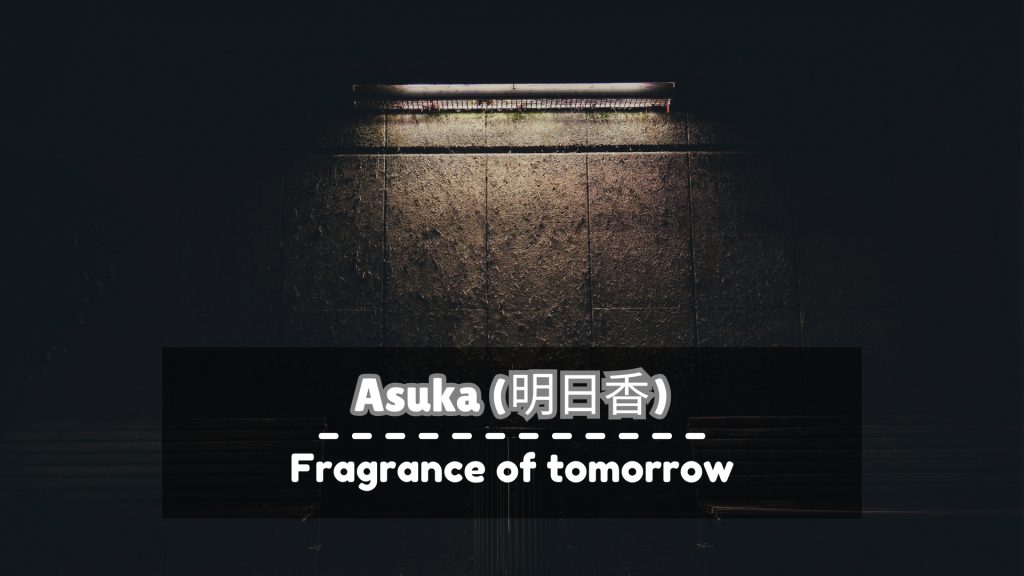
- Kikuri (鬼哭) – Demon’s cry
- Hanako (花子) – Spirit of the bathroom legend
- Kurokami (黒髪) – Black hair, symbolic of hidden fate
- Onryou (怨霊) – Vengeful ghost
- Okiku (お菊) – Haunted well maiden
- Botan (牡丹) – Peony of the afterlife
- Yasha (夜叉) – Night demon
- Koemi (小笑) – Bitter smile
- Amai (甘い) – Sweet but cursed
- Kagehime (影姫) – Princess of shadows
- Tsukushi (筑紫) – Old name tied to mysterious lands
- Tokiwa (常盤) – Evergreen soul
- Sayo (小夜) – Little night
- Shiori (栞) – Bookmark left in a sorrowful tale
- Misaki (御先) – Spirit guide
- Yomiko (黄泉子) – Child of the underworld
- Hozuki (鬼灯) – Demon lantern
- Kayo (歌世) – Singing of another world
- Tsuyuha (露葉) – Dew leaf touched by spirits
- Kurobara (黒薔薇) – Black rose
- Yugiri (夕霧) – Evening mist
- Uramiya (恨宮) – Palace of resentment
- Kokkuri (こっくり) – Spirit of divination
- Tomoe (巴) – Name tied to warrior legends
- Ayatsuri (操り) – Puppet
- Kurenai (紅) – Deep crimson
- Kazane (風音) – Wind’s whisper
- Hina (雛) – Doll
- Kohime (小姫) – Little princess spirit
- Sumika (澄佳) – Dweller in shadows
- Narumi (鳴海) – Sea of cries
- Akiko (秋子) – Autumn child
- Yamiko (闇子) – Child of darkness
- Rinno (輪乃) – Cycle of spirits
- Kanaoka (香直香) – Fragrance of truth and decay
- Yushika (幽詩香) – Fragrant ghost poem
- Honoka (炎香) – Fiery scent
- Sayuriha (小百合葉) – Lily leaf in twilight
- Izanami (伊邪那美) – Goddess of death
- Tsukihime (月姫) – Moon princess
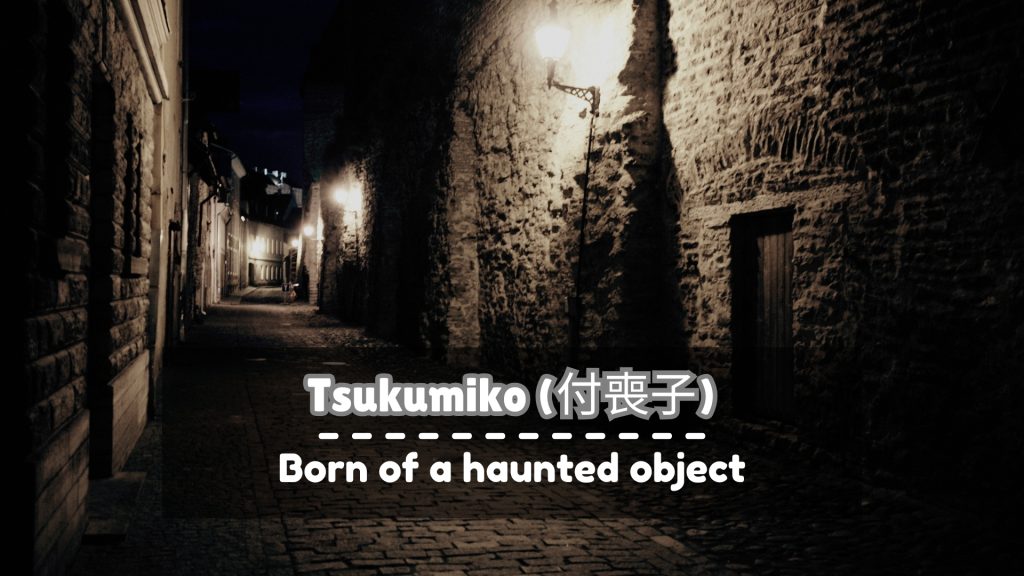
- Kamiko (神子) – Child of a god or spirit
- Ameonna (雨女) – Rain woman spirit
- Nuriko (濡子) – Wet child spirit
- Hoshihime (星姫) – Star princess
- Majo (魔女) – Witch
- Sairen (冴蓮) – Frozen lotus
- Tsukumogami (付喪神) – Possessed object
- Kiyomi (清美) – Pure yet cold beauty
- Reiketsu (冷血) – Cold-blooded
- Yomi (黄泉) – Land of the dead
- Hannya (般若) – Mask of a jealous spirit
- Shion (紫苑) – Flower for mourning
- Yoruha (夜羽) – Night feather
- Mibae (未映) – Yet to shine
- Kirika (霧花) – Mist flower
- Usuyuki (薄雪) – Light snow of grief
- Kaoru (薫) – Fading scent of the past
Spice up your next game night with these freaky 21 questions Game that’ll leave everyone blushing.
Unisex Japanese Names With Dark Meanings (Including Female Usage)
Dark names in Japan aren’t just eerie—they’re poetic, powerful, and full of soul. Many unisex names echo nature, shadows, sorrow, and silence. Used by all genders, these names speak of hidden strength and deep emotion. Whether tied to the night or a fading dream, each name here offers more than beauty—it offers mystery.
- Mei (冥) – dark
- An (暗) – silent darkness
- Kurai (昏い) – gloomy
- Rei (霊) – ghost
- Sora (空) – empty sky
- Shinju (真珠) – deep sorrow
- Raku (落) – fallen
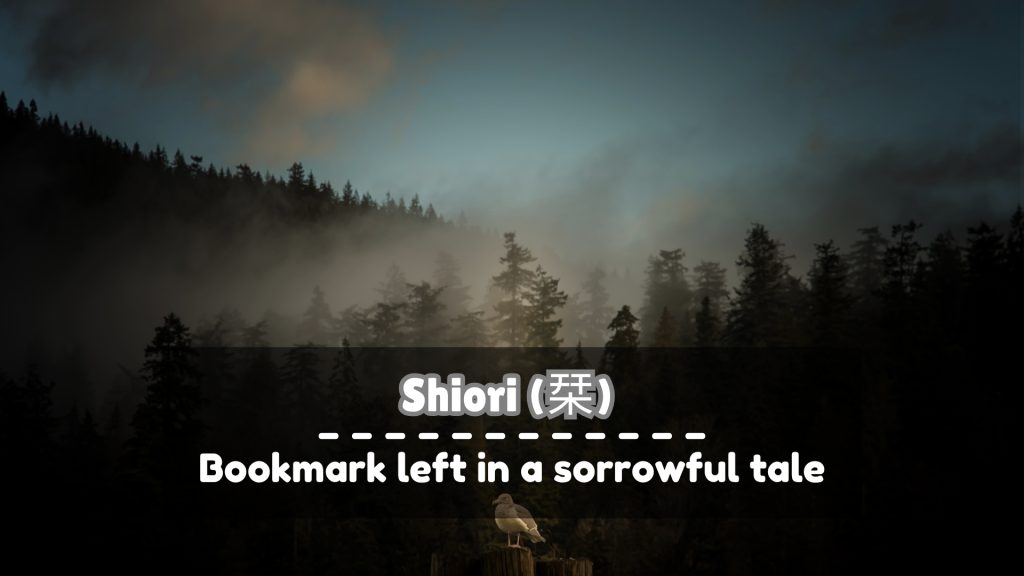
- Zetsu (絶) – despair
- Kouya (荒野) – wilderness
- Tsukiko (月子) – moon child
- Naku (泣く) – to cry
- Shinu (死ぬ) – death
- Riku (陸) – land of silence
- Rinshi (臨死) – cold death
- Arashi (嵐) – storm
- Hyou (氷) – icy
- Tsumi (罪) – sin
- Kokoro (心) – broken heart
- Kowan (恐惶) – fear
- Kasumi (霞) – dim mist
- Kuroha (黒羽) – black feather
- Mizuki (水月) – shadowed moon
- Yuugen (幽玄) – profound darkness
- Kyou (狂) – madness
- Kyoufu (恐怖) – terror
- Hazuki (葉月) – dark leaf
- Maiko (魔衣子) – child of evil
- Aokuro (青黒) – blue-black
- Kururu (狂々) – dark swirl
- Shiranai (知らない) – unknown
- Hinode (日陰) – dark dawn
- Kurozora (黒空) – black sky
- Naraku (奈落) – abyss
- Usotsuki (嘘つき) – liar
- Kagemi (影見) – shadow mirror
- Namida (涙) – tear

- Kanashii (悲しい) – sorrow
- Chinmoku (沈黙) – silence
- Enmu (煙霧) – mist of darkness
- Fukai (深い) – deep
- Maboroshi (幻) – phantom
- Shikyo (死境) – death
- Reikon (霊魂) – wandering soul
- Himei (悲鳴) – shriek
- Guren (紅蓮) – crimson lotus
- Maku (幕) – curtain of shadow
- Yamiyo (闇夜) – night darkness
- Seishin (精神) – lost soul
- Kurosame (黒雨) – black rain
Dark Japanese Last Names Used as First Names for Girls
Some last names whisper of secrets, sorrow, or ancient stories. When used as first names, they give a quiet but bold presence. These Japanese surnames carry layers of meaning—storm, shadow, silence, and even the supernatural—while still sounding graceful for girls. Their elegance lies in their edge.
- Kuromori (黒森) – black forest
- Yagami (八神) – eight darknesses
- Fujikawa (藤川) – wisteria river
- Abarame (暴雨女) – violent rain
- Kuronuma (黒沼) – black swamp
- Kazehaya (風早) – early wind
- Shiba (芝) – brushwood
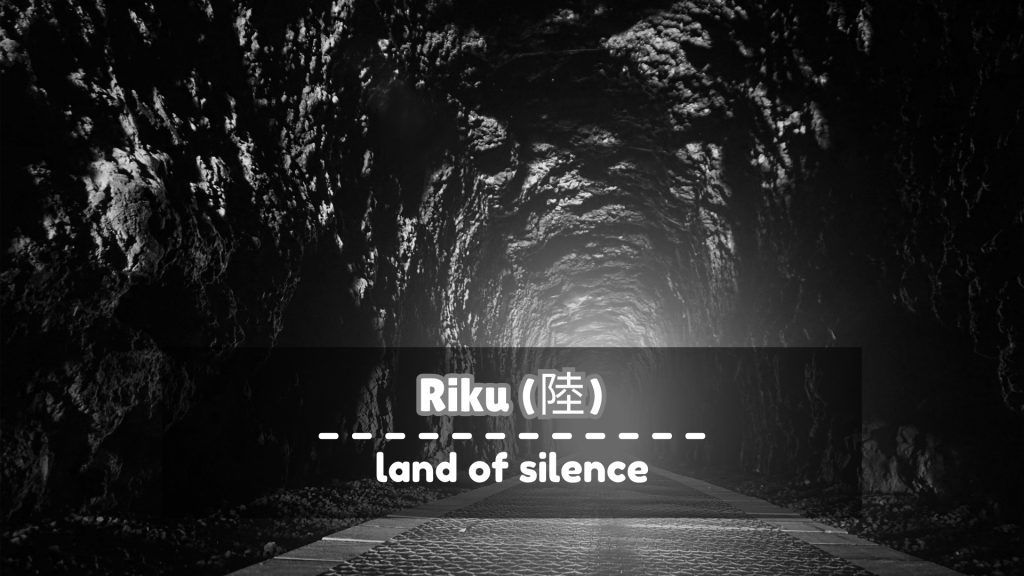
- Hoshigaki (干柿) – dried star
- Mikage (御影) – deep shadow
- Kamizuki (神月) – god’s moon
- Tsuchiya (土谷) – earth valley
- Shiguma (静雲) – quiet fog
- Kurobane (黒羽) – black feather
- Kiryuu (霧龍) – mist dragon
- Tsukigami (月神) – moon god
- Yomiyama (黄泉山) – reading mountain
- Kaminari (雷) – thunder
- Namikawa (波川) – wave river
- Fushiguro (伏黒) – mysterious black
- Kurosawa (黒沢) – dark swamp
- Amagiri (天霧) – rain mist
- Gojou (五条) – five paths
- Kuroyuri (黒百合) – black lily
- Kamikuro (神黒) – divine black
- Hoshikage (星影) – star shadow
- Kagurazaka (神楽坂) – shrine hill
- Yonezawa (米沢) – dark rice field
- Kiryoku (霧力) – mist force
- Hozuki (鬼灯) – demon lantern
- Ayakashi (妖) – spirit being
- Tsurugi (剣) – blade
- Kirigaya (霧ヶ谷) – mist valley
- Akegumo (曙雲) – dawn cloud
- Shimizu (清水) – quiet water
- Kuroshiba (黒芝) – dark brushwood
- Oboro (朧) – hazy moon
- Mononobe (物部) – thing guardian
- Kurozaki (黒崎) – black cape
- Araragi (斑鳩) – wild tree
- Yuzuki (優月) – gentle moon
- Hyouga (氷河) – glacier
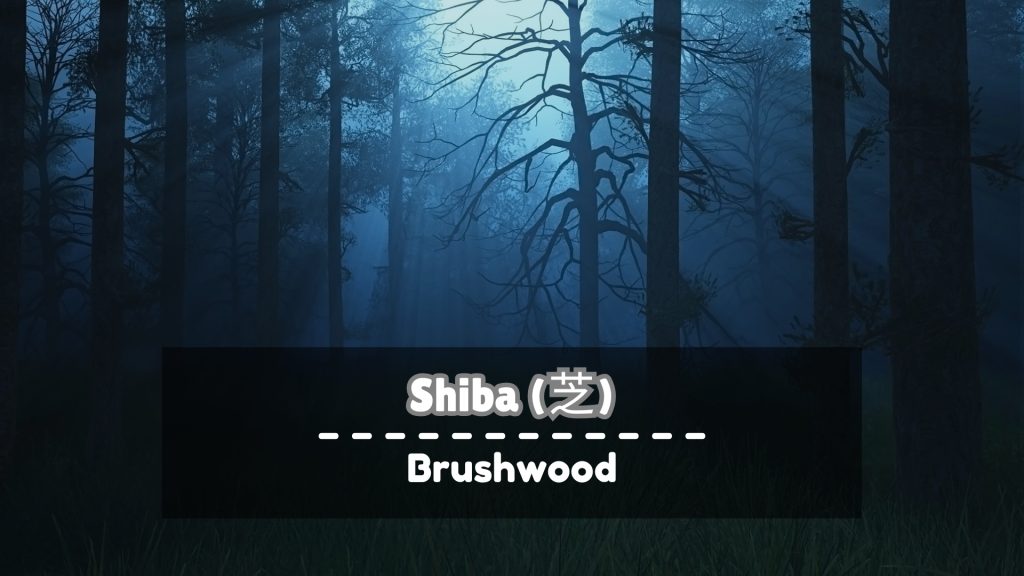
- Kagemura (影村) – shadow village
- Fukagawa (深川) – deep river
- Okabe (丘辺) – hill guard
- Shikimori (式守) – ceremony forest
- Akebono (曙) – faint dawn
- Kujo (九条) – ninth street
- Morikawa (森川) – forest river
- Kazanami (風波) – wind wave
- Tsunemori (常森) – everlasting forest
- Kurumizawa (胡桃沢) – dark nut stream
- Yamakiri (山霧) – mountain fog
- Kumogakure (雲隠れ) – hidden in clouds
- Mizuho (瑞穂) – dark water ear
- Hoshimi (星見) – star watcher
- Nakatomi (中臣) – inner darkness
- Shinkai (深海) – deep sea
- Uzumaki (渦巻き) – spiral
- Kamiyo (神世) – divine age
- Tsukiyo (月夜) – moonlit night
Uncover the hidden emotions with these powerful pain-behind-the-smile quotes.
How Kanji Influences the Meaning of Dark Japanese Names
Kanji shapes the very soul of a name. Two people may share the same sound, yet their names may hold completely different meanings. When darkness is chosen as a theme, kanji brings its depth to life—silent pain, forgotten beauty, eternal night. With each stroke, a quiet story is told.
- Rei (霊) – spirit
- Kuro (黒) – black
- Mei (冥) – dark abyss
- Yami (闇) – darkness
- An (暗) – dim
- Tsuki (月) – moon
- Tsuki (憑) – possessed
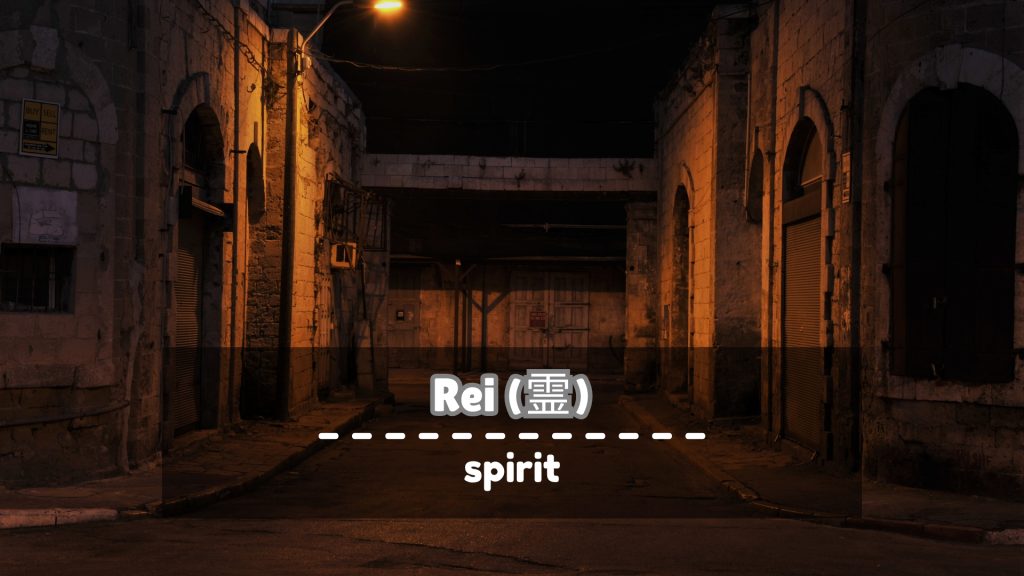
- Shin (死) – death
- Shin (心) – heart
- Kage (影) – shadow
- Kage (景) – scenery
- Fuyu (冬) – winter
- Fuyu (浮遊) – drifting
- Ame (雨) – rain
- Ame (哀) – sorrow
- Ran (乱) – chaos
- Ran (蘭) – orchid
- Raku (落) – fall
- Raku (楽) – comfort
- Yoru (夜) – night
- Yoru (寄る) – approach
- Kiri (霧) – fog
- Kiri (斬) – cut
- Sora (奏楽) – music
- Tsumi (積) – burden
- Shiro (白) – white
- Shiro (城) – castle
- Haku (薄) – pale
- Haku (魄) – soul
- En (煙) – smoke
- En (怨) – grudge
- Kuroi (黒い) – black one
- Kuroi (苦労) – hardship
- Amai (甘い) – sweet
- Amai (呪) – cursed
- Kanashii (悲しい) – sorrowful
- Kanashii (奏詩) – poetic sorrow
- Hyou (氷) – ice
- Hyou (豹) – leopard
- Rinshi (臨死) – near death
- Rinshi (凛志) – cold resolve
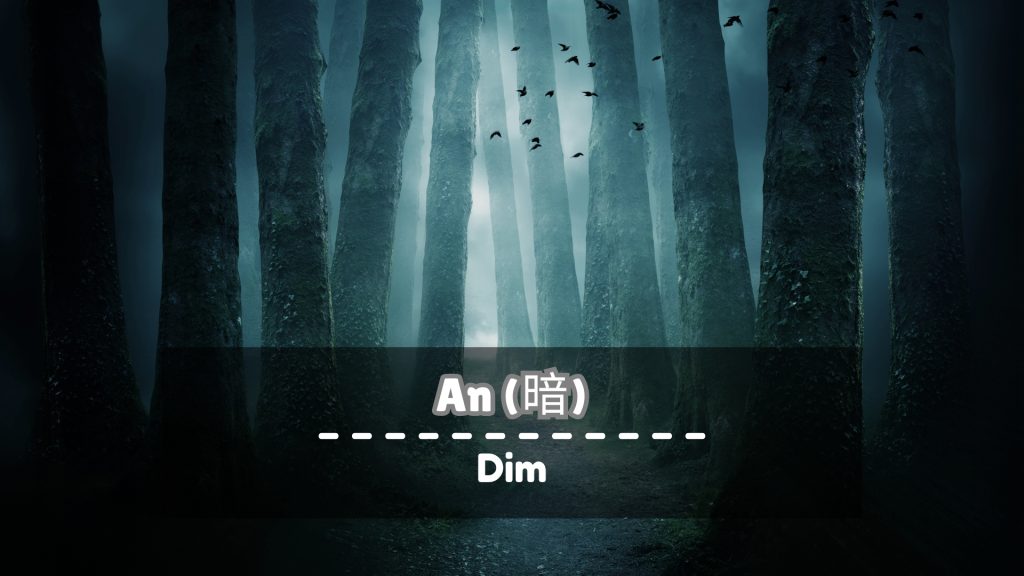
- Kaibyou (怪猫) – mysterious cat
- Kaibyou (会病) – meeting sickness
- Maku (幕) – curtain
- Maku (膜) – membrane
- Yasha (夜叉) – demon
- Yasha (耶舎) – spiritual being
- Oboro (朧) – hazy
- Oboro (幻) – illusion
- Naraku (奈落) – hell
- Naraku (鳴楽) – singing sorrow
- Zetsu (絶) – end
- Zetsu (舌) – tongue
- Akumu (悪夢) – nightmare
- Akumu (明夢) – dark dream
- Kurami (暗美) – dark beauty
- Kurami (倉見) – warehouse sight
Conclusion
So, whether you’re naming a character, building your dream baby name list, or just love collecting words with a little edge and elegance, these names deliver all the mysterious vibes you could ask for. Dark meanings? Check. Hauntingly beautiful sounds? Double check. That perfect blend of “ethereal princess” and “don’t cross me”? Absolutely.
Remember, names carry power—and these ones don’t whisper, they linger. So take your time, trust your gut, and pick the one that gives you goosebumps (in the best way).
And hey, if you suddenly find yourself journaling under candlelight or curating a playlist called “melancholy moon,” don’t worry—we won’t judge. We’re already there with you.
Explore what’s new in Whisker Planet —don’t miss this fresh update!






